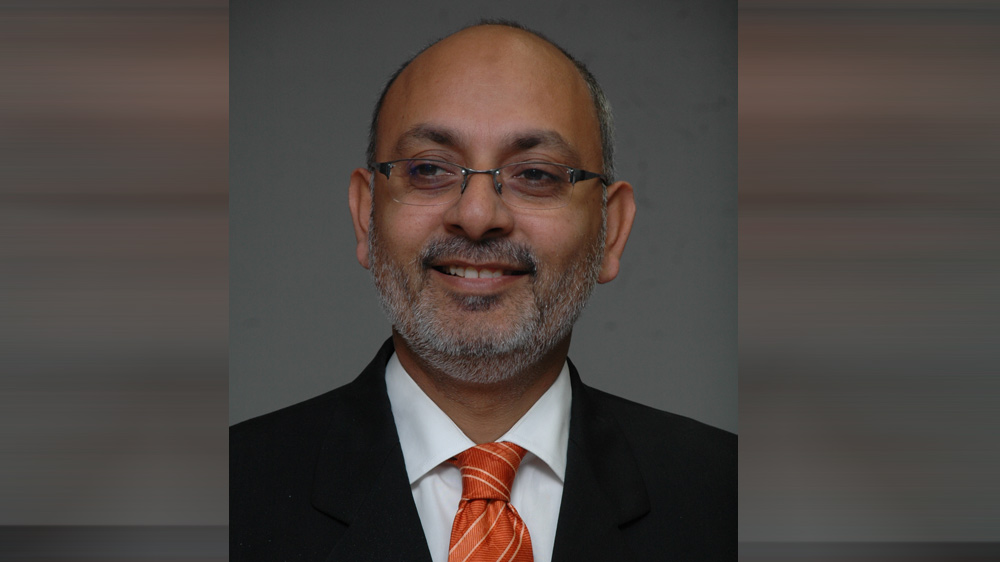Salman Wassay, the telecom guru turned entrepreneur, exclusively speaks with Pro Pakistani about his take on the “shared economy” and uber-ization of the service industry landscape of Pakistan.
Interviewer: Welcome Salman, thank you for being here with us today. You’ve been bang in the middle of Pakistani telecom most of your career, you’re a mentor at LUMS, Jazz NIC, other incubators… You’ve had a vantage point from where you’ve closely witnessed the birth of the mobile internet and we’re excited to hear your thoughts on where things are going.
Salman Wassay: It’s a pleasure to be here. Absolutely, as you mentioned, mobile internet really has changed things in a big way here in our country. Telecom was how people connected, now its apps. Internet-enabled apps for communication, for services, for buying/ selling/ sending/ receiving. The Shared Economy is making the day to day needs more accessible. It’s a great time to be here. We’re seeing the people of Pakistan become tech savvy at a phenomenal rate which will change many things about our way of life in the next 10 years.
Interviewer: So, Salman for people who don’t know, what is the Shared Economy?
Salman Wassay: Well the Social Sharing Economy offers immense value, especially in underdeveloped nations if used correctly. At its core, the “Shared Economy” is literally just the sharing of resources between people. Derived from not-for-profit initiatives, the on-demand economy has quickly appeared on the global business landscape and has evolved into a collection of firms that connect millions of consumers with other private citizens for goods and services on-demand. With mobile apps, the uptake has been unprecedented.
Interviewer: So, in your opinion, where does Pakistan stand in this regard right now and how do you see the Shared Economy further impacting our future?
Salman Wassay: Well, as most of Pakistan is already experiencing first-hand, Uber and Careem are sending ripples through the country with their ride-sharing service. The service as you know, lets you catch a ride in most major cities of Pakistan. We haven’t seen many other services using the shared economy method picking up the way the major players have, which is a concern for me. I believe the mindset is currently being changed and with time more services will appear on the landscape. We’ll probably see Airbnb become more commonplace in Pakistan, and hopefully something like TaskRabbit. With these services growing I’m keen to see the positive impact on customer services in our country.
Interviewer: If I’m not mistaken, you see the Shared Economy model being implemented right now as mostly self-styled right?
Salman Wassay: Well right now the major players are focused on uptake. Shared Economy implementation in Pakistan currently involves, to a large extent, taking on investors who buy a great deal of vehicles and run them on the service. This isn’t necessarily helping build community but once the Pakistani people have become more used to these kinds of services we’ll probably see more “people” using the shared economy to “help” one another.
Interviewer: Why start a delivery service and where does Couch Potato stand right now?
Salman Wassay: We started Couch Potato with the belief that people should do more meaningful things with their time. For people who would rather not run menial errands after work. For those who want to spend time with family instead of rushing to pick up the eggs. For when you forgot something at a friend’s house or the office. Couch Potato works to free up time in these situations and more.
Being headquartered in Islamabad, we’ve done over 75,000 deliveries in Karachi and Islamabad since inception. Our deliveries have included food delivery, package deliveries like laptop chargers or documents, shopping locally, shopping from other cities, and some fun deliveries like birthday balloons and presents.
We partner with young people with motorbikes, enabling them to use their extra hours to do some extra work and earn. Riders we team up with are part of a trusted community and take regular trainings in-house. We’re happy to be contributing in our own way towards improving lives with our service.
Interviewer: Are Careem and Uber your competitors?
Salman Wassay: I wouldn’t say Careem or Uber are our direct competitors, but we do share a very similar model and appeal to a similar audience. Although Careem has recently moved into the delivery domain through bikes in Pakistan, we’re not worried. There is enough to go around with the industry constantly growing and going through changes every day; regulatory and otherwise.
Let me throw in some facts. Over the past five years, developments in the e-commerce and online retailing space have driven noticeable growth in the Delivery Services industry. Pakistan is poised to hit $1 Billion in ecommerce revenue by the end of 2018. Originally the forecasts were to hit a billion by 2020. Which means deliveries, lots and lots of deliveries. E-commerce cannot grow without the growth in last mile delivery, and that’s where companies like couch potato come in. There are also currently 40+ million smartphones in Pakistan and the numbers are growing at a phenomenal rate. This momentum is expected to continue with a now digitally connected consumer, looking for lower prices, greater convenience and a seamless experience when buying and receiving products.
There’s bound to be giants, doing a lot of things, but services like ours, focused on just deliveries, will have an edge of their own.
Interviewer: So, is Careem venturing in the same business as Couch Potato?
Salman Wassay: As I mentioned earlier, the word is they are moving into the delivery service space, but I can’t be certain. The only thing my team and I are focused on is bringing the absolute best last mile delivery experience to the people of Pakistan.
Interviewer: What is in the future for Couch Potato?
Salman Wassay: Well, Pakistan is one of the world’s largest youth bulge countries with 56 percent population (age 15-64) in the productive age group. We will continue to enable communities with a line of products and affiliations that will link in with Couch Potato. Some of our goals are:
- Building trust in a country that struggles with trust
- Offering flexibility to service providers in deciding their typical working hours
- Linking consumers seamlessly with everyday items within their city
- A seamless tool to manage their day to day delivery related errands
Several local and international parties have shown interest in collaborating, investing, and potentially buying Couch Potato. We are speaking to a few large Logistics Service Providers, to see how we can take this brand and delivery service all over Pakistan and the rest of the world.
Interviewer: Thank you for being with us today Salman. Very insightful. Any final words?
Salman Wassay: Every day we discover a new type of delivery-related function for Couch Potato when we see how our customers are using it. The data we are accumulating is priceless and Couch Potato is evolving into what could be the Go-JEK of retail and package delivery in Pakistan. If GO-JEK; an Indonesian hyperlocal transport, logistics and payments startup founded in 2010, can do 350,000+ bookings a day on average (January 2016), we are a similar market, why can’t we be in the same range?
I’m very much looking forward to where the industry is going because technology is allowing us to imagine things which we couldn’t before. I see Pakistan as an over one billion USD hyper-local delivery and e-commerce delivery industry in the next 5-10 years. I see good things for our future.



























seriously…Couch Potato? the name majority might not even able to pronounce in Pakistan.